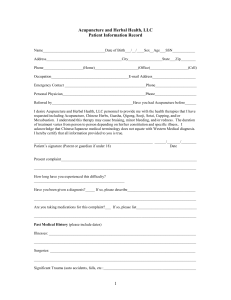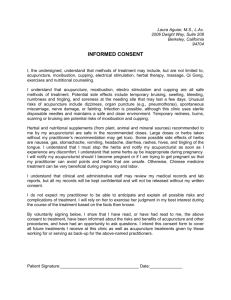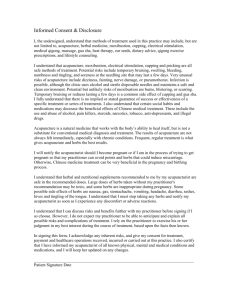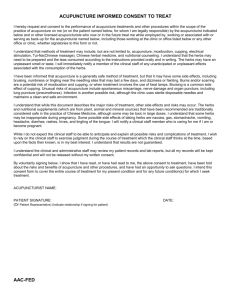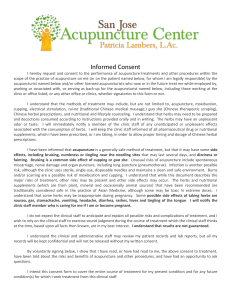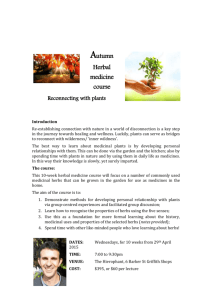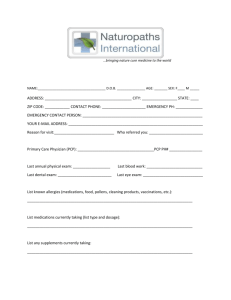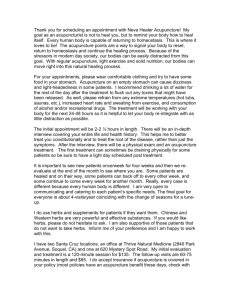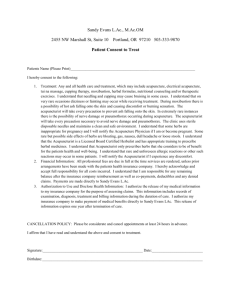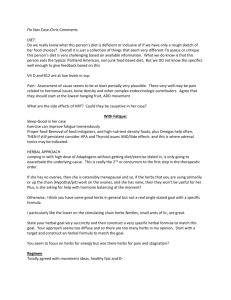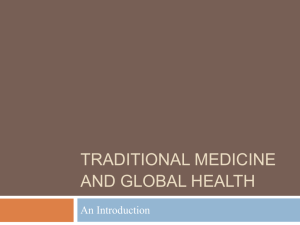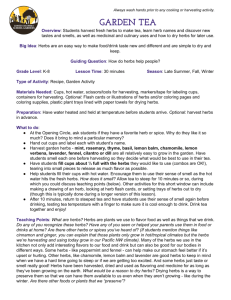CHINESE HERBAL MEDICINE: AN INTRODUCTION
advertisement
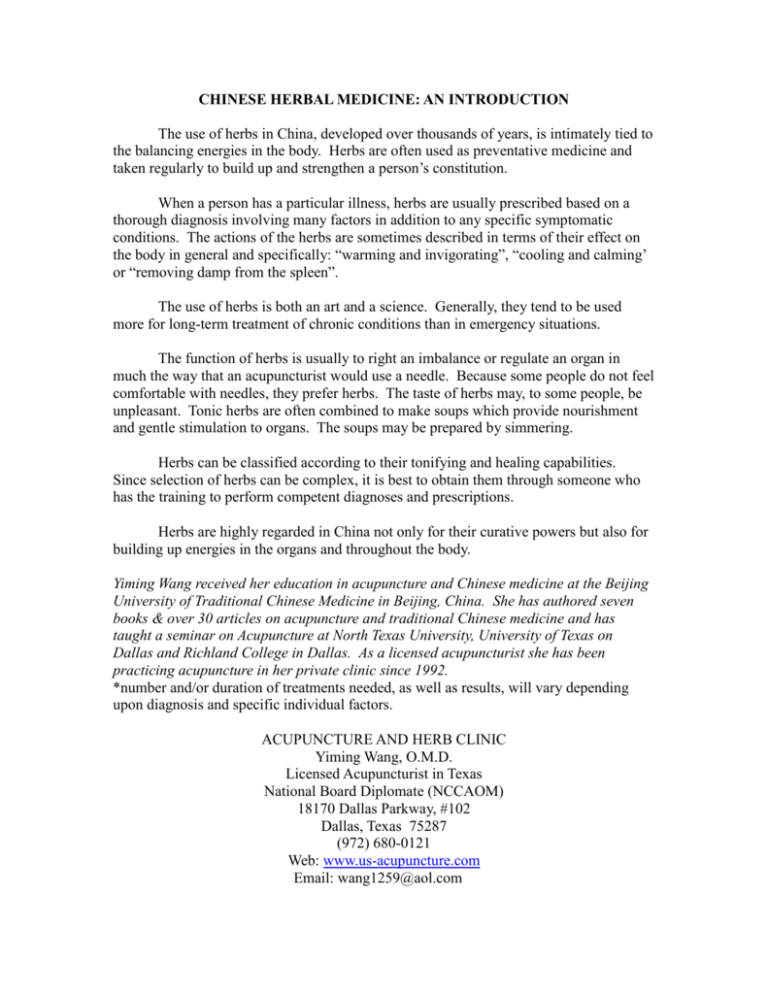
CHINESE HERBAL MEDICINE: AN INTRODUCTION The use of herbs in China, developed over thousands of years, is intimately tied to the balancing energies in the body. Herbs are often used as preventative medicine and taken regularly to build up and strengthen a person’s constitution. When a person has a particular illness, herbs are usually prescribed based on a thorough diagnosis involving many factors in addition to any specific symptomatic conditions. The actions of the herbs are sometimes described in terms of their effect on the body in general and specifically: “warming and invigorating”, “cooling and calming’ or “removing damp from the spleen”. The use of herbs is both an art and a science. Generally, they tend to be used more for long-term treatment of chronic conditions than in emergency situations. The function of herbs is usually to right an imbalance or regulate an organ in much the way that an acupuncturist would use a needle. Because some people do not feel comfortable with needles, they prefer herbs. The taste of herbs may, to some people, be unpleasant. Tonic herbs are often combined to make soups which provide nourishment and gentle stimulation to organs. The soups may be prepared by simmering. Herbs can be classified according to their tonifying and healing capabilities. Since selection of herbs can be complex, it is best to obtain them through someone who has the training to perform competent diagnoses and prescriptions. Herbs are highly regarded in China not only for their curative powers but also for building up energies in the organs and throughout the body. Yiming Wang received her education in acupuncture and Chinese medicine at the Beijing University of Traditional Chinese Medicine in Beijing, China. She has authored seven books & over 30 articles on acupuncture and traditional Chinese medicine and has taught a seminar on Acupuncture at North Texas University, University of Texas on Dallas and Richland College in Dallas. As a licensed acupuncturist she has been practicing acupuncture in her private clinic since 1992. *number and/or duration of treatments needed, as well as results, will vary depending upon diagnosis and specific individual factors. ACUPUNCTURE AND HERB CLINIC Yiming Wang, O.M.D. Licensed Acupuncturist in Texas National Board Diplomate (NCCAOM) 18170 Dallas Parkway, #102 Dallas, Texas 75287 (972) 680-0121 Web: www.us-acupuncture.com Email: wang1259@aol.com
